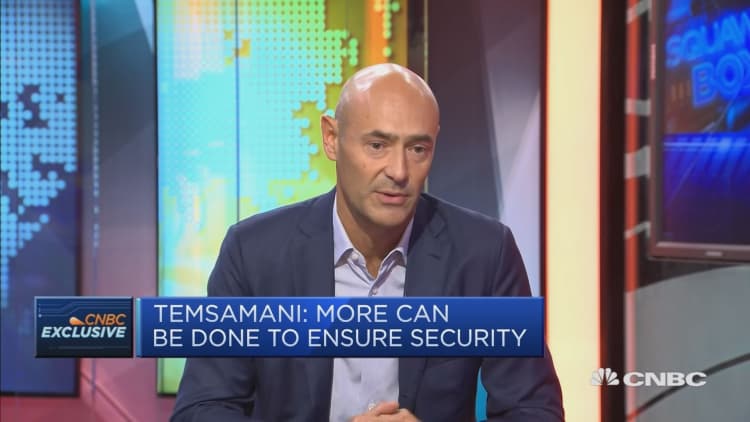
Facebook said this week that Russian-backed election content on the platform reached 126 million Americans; Twitter found 36,000 Russian accounts were active during the election; and Google said pro-Russian groups purchased $4,700 worth of ads on its platforms.
But the spread of propaganda and misinformation online is a global problem that has yet to be fully solved, according to a Google executive.
"Most of the media has focused on in the U.S., but it's a global problem, in the sense that we need to ensure that people have access to the right type of information," Karim Temsamani, president for Asia Pacific at Google, told CNBC's "Squawk Box."
Executives from Facebook, Twitter and Google appeared before members of the U.S. Congress this week to testify about the extent of foreign influence on their platforms during the 2016 presidential election.
They were criticized for what the politicians said was an inadequate response to Russian online activities.
To be clear, the Russian government has denied any attempts to influence the election, in which President Donald Trump defeated former Secretary of State Hillary Clinton.
Previously, in an interview with Fast Company, Alphabet Chairman Eric Schmidt said that the company — Google's parent — didn't anticipate the extent to which governments would use hacking to control the information space. He was referring specifically to the alleged Russian interference in the U.S. election. Schmidt added he was worried that the next U.S. presidential election in 2020 will see the Russians having "a lot more powerful tools."

Temsamani agreed with Schmidt's sentiment, saying "I think we've been surprised by the extent that it has grown at." He pointed out, however, that what differentiated Google from the likes of Facebook and Twitter was that it was not a social media platform. That meant the chances of seeing many targeted ads was much lower on Google platforms.
"So we've been a lot more protected and also we've had very strong security systems in place to stop that happening," he said.
There are two separate problems at hand, according to Temsamani. First is the prevalence of terrorism-related content and second is the spread of misinformation through fake news.
Google has put systems and practices in place that help to take down terrorism-related content faster, he said, adding that the company has adjusted its policies to make such information harder to find on its platforms like YouTube. Google also has brought in more people to review content, according to Temsamani.
—CNBC's Sara Salinas contributed to this report.


